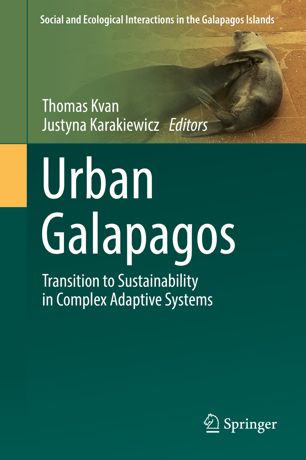

Most ebook files are in PDF format, so you can easily read them using various software such as Foxit Reader or directly on the Google Chrome browser.
Some ebook files are released by publishers in other formats such as .awz, .mobi, .epub, .fb2, etc. You may need to install specific software to read these formats on mobile/PC, such as Calibre.
Please read the tutorial at this link: https://ebookbell.com/faq
We offer FREE conversion to the popular formats you request; however, this may take some time. Therefore, right after payment, please email us, and we will try to provide the service as quickly as possible.
For some exceptional file formats or broken links (if any), please refrain from opening any disputes. Instead, email us first, and we will try to assist within a maximum of 6 hours.
EbookBell Team

5.0
108 reviewsThis book addresses the future of urbanisation on the Galapagos Islands from a systems, governance and design perspective with the competing parameters of liveability, economic and ecological, using the Galapagos as a laboratory for the theoretical and postulative understanding of evolving settlement and habitation.
The Galapagos islands are one of the world’s most examined and reported examples of a series of naturally evolving ecosystems. The biodiversity of these island ecosystems are the focus of tourism and the image across the world yet human settlement are part of the local ecology. While human intervention is limited, the islands are a distinctive context in which to consider the impact of human habitation as a part of our ecosystems.
In this book, authors take the framework of complex adaptive systems (CAS) in which to model systems that grow and evolve, the relations between these various sectors change; systems that get more complex as they evolve. Tested and applied discretely in the two realms of natural and urban, for the first time this text will bring the two together in understanding options for the future of urban settlements on the Galapagos Islands and, by extension, consider how the approach can be used globally in other contexts.